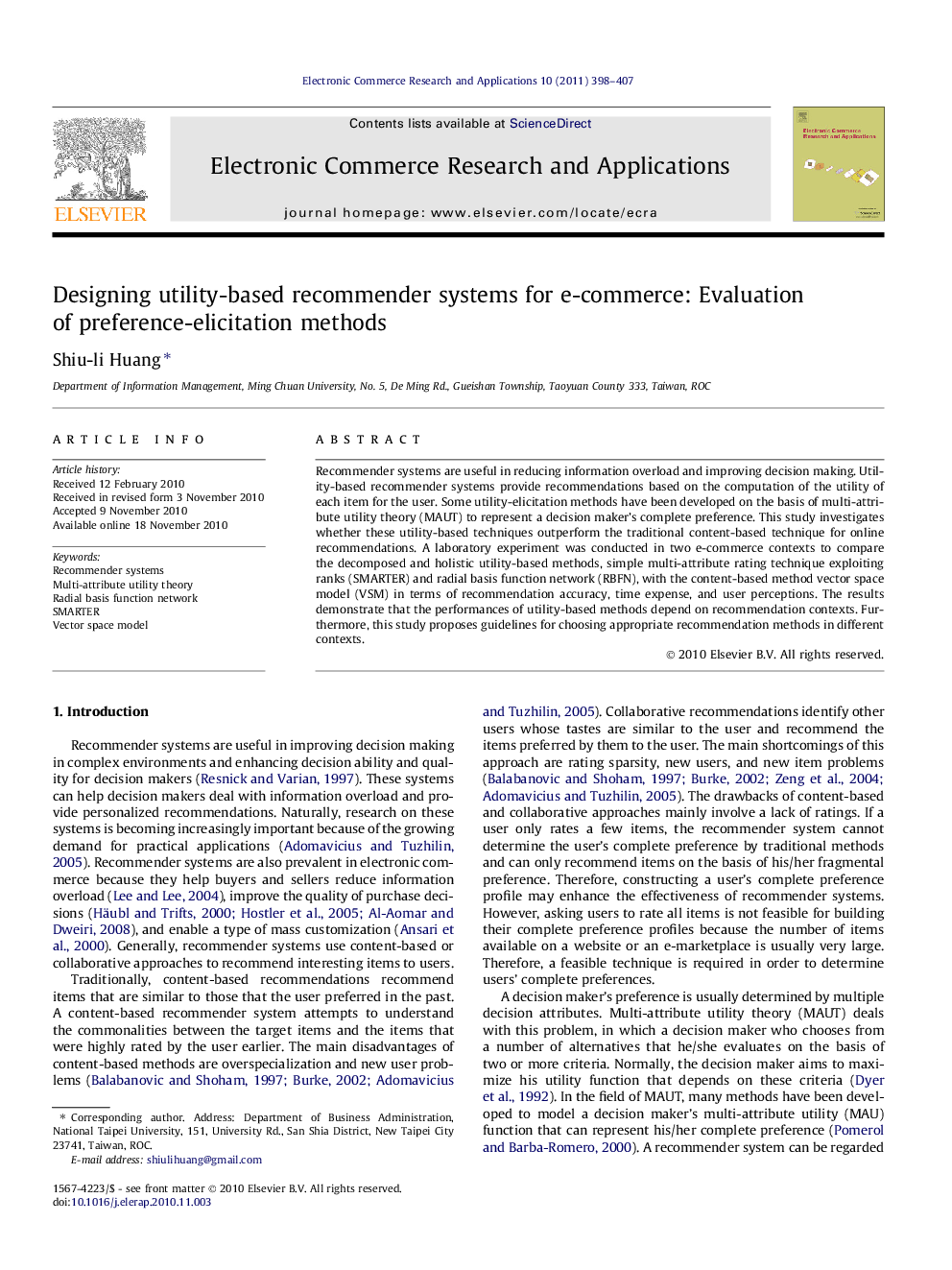| Article ID | Journal | Published Year | Pages | File Type |
|---|---|---|---|---|
| 379863 | Electronic Commerce Research and Applications | 2011 | 10 Pages |
Recommender systems are useful in reducing information overload and improving decision making. Utility-based recommender systems provide recommendations based on the computation of the utility of each item for the user. Some utility-elicitation methods have been developed on the basis of multi-attribute utility theory (MAUT) to represent a decision maker’s complete preference. This study investigates whether these utility-based techniques outperform the traditional content-based technique for online recommendations. A laboratory experiment was conducted in two e-commerce contexts to compare the decomposed and holistic utility-based methods, simple multi-attribute rating technique exploiting ranks (SMARTER) and radial basis function network (RBFN), with the content-based method vector space model (VSM) in terms of recommendation accuracy, time expense, and user perceptions. The results demonstrate that the performances of utility-based methods depend on recommendation contexts. Furthermore, this study proposes guidelines for choosing appropriate recommendation methods in different contexts.
